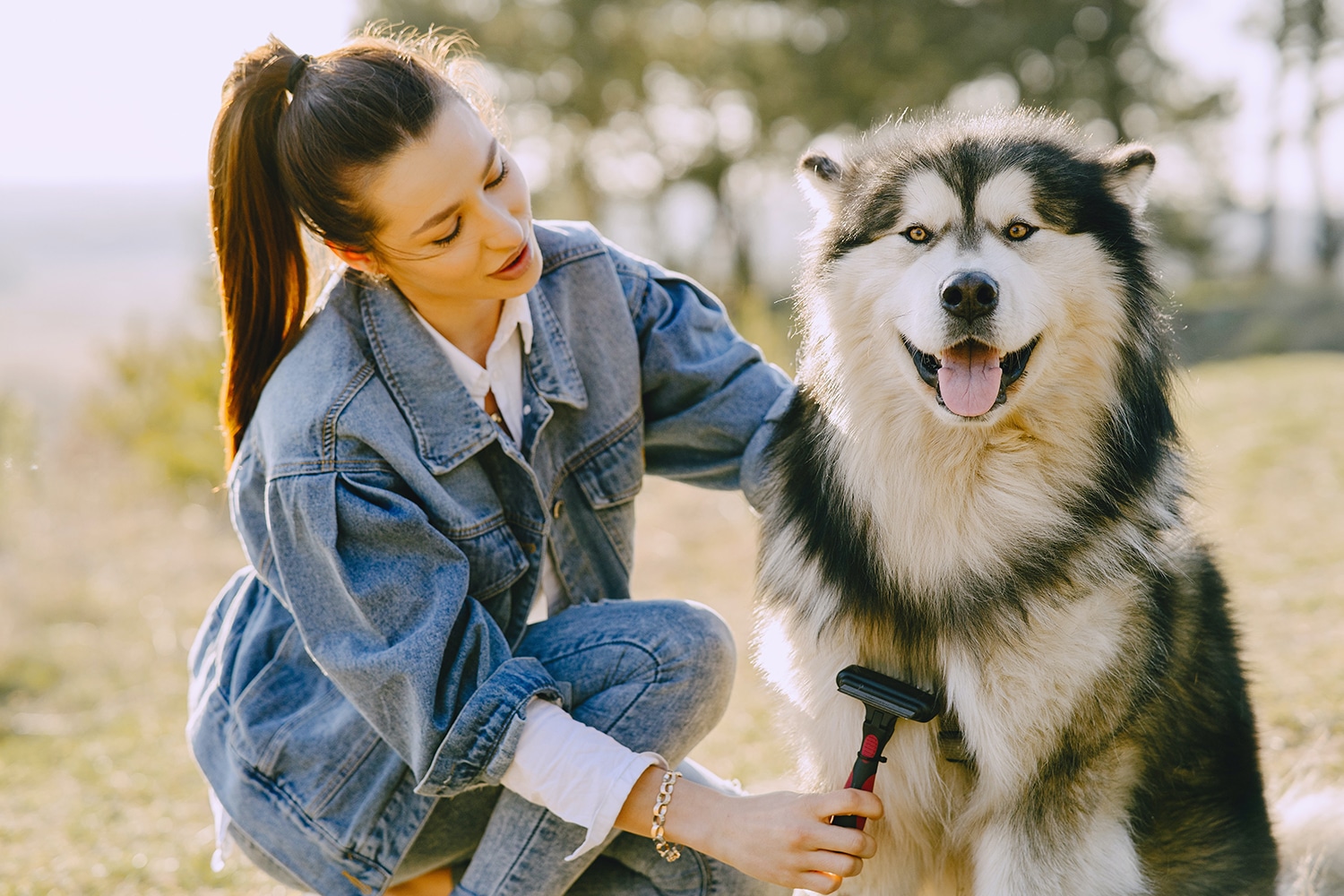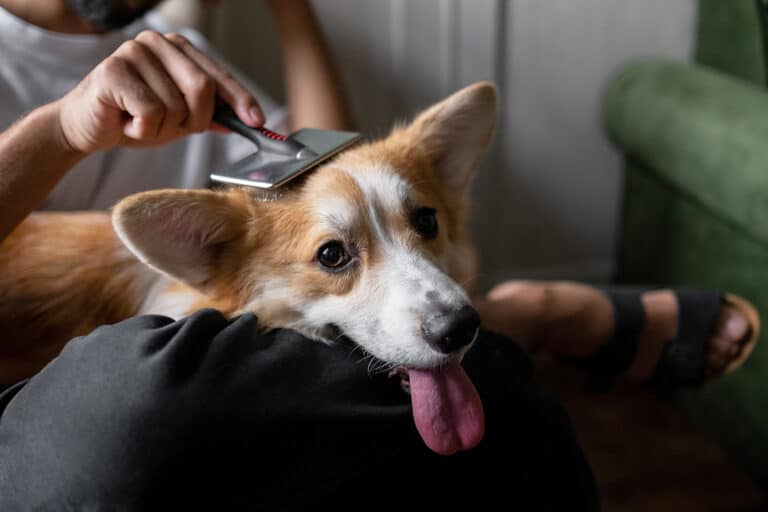
There are so many types of brushes on the market, so how do you know what the best kind is for your pet? FURminator has been advertised as a deshedding tool for cats and dogs to the point where people think that’s all there is for deshedding and that it’s the best option. But marketing can be deceiving. We’re here to break down the different types of brushes and what makes certain ones right for specific pets.
The truth about Furminators is that there are much better tools. While they do get a lot of the undercoat out, they can severely damage the topcoat in the process, causing your pet’s coat to become dull in color and texture.
The Necessities
You thought I was going to talk about brushes! I will get there, but first we need to talk about clean hair versus dirty hair.
Brushing dirty hair or greasy hair, even with the best hair brushes, is very difficult and can also be damaging while clean, dry hair is much easier to brush. Unfortunately, using dry shampoo probably won’t work if your pet is super dirty but it may help with greasy hair.
That is not to say that you need to bathe your dog every time you brush it, but it is good to be aware of how dirty your pet is, especially if having issues brushing. Think about washing your hair – it is much easier to brush when it is clean.
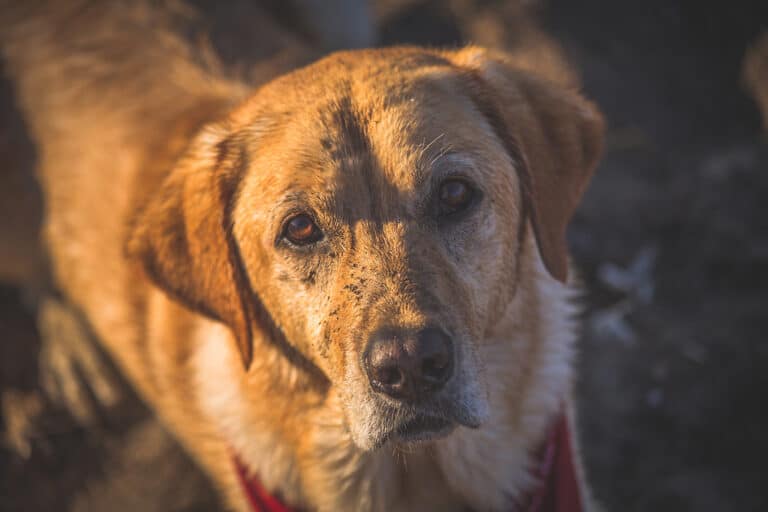
Another great tip is mixing a little bit of conditioner (about ½ tsp) with water in a spray bottle. Mist your pet with the spray bottle in the area you want to brush. This will help the brush glide gently through the hair and help prevent any unnecessary breakage.
Start Brushing Your Dog Early
It is of utmost importance to start brushing your pet at home as early as you can – yes, even when your dog is a puppy!
Introduce grooming by brushing just a minute or two a day. Young puppies shouldn’t have tangles, and it’s the perfect age to begin brushing because it will ensure they enjoy the experience rather than fear it. Remember: it’s never too early to start brushing!
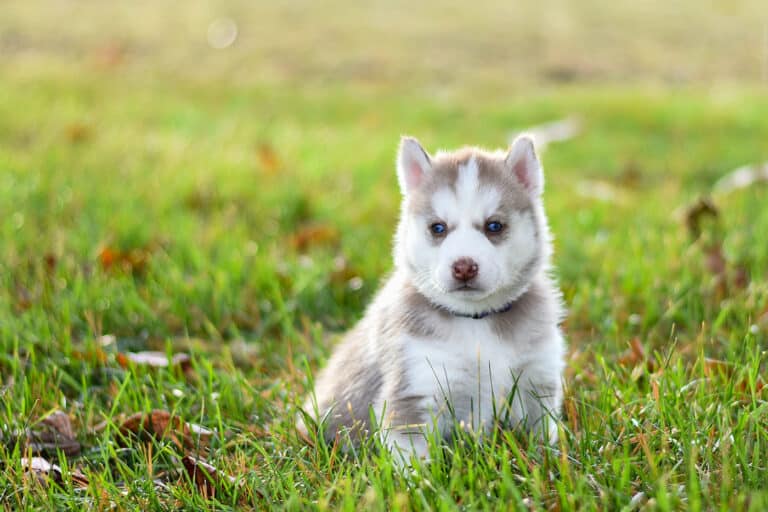
Types of Brushes
There are several different types of hair brushes available to pet parents and pet professionals. Determining which brush is best for you is easiest to do if you break down different coat and hair types.
Short, Smooth Coats
Breeds like Boston Terriers, Pugs, Boxers and Pit Bulls don’t need a ton of brushing done at home. If you are experiencing trouble with shedding and want a good way to brush them, a curry brush will be the best tool for the job.
There are several different brands and kinds of curry brushes, but they are rubber and have knobs on them to help break up the hair and release dead undercoat. They are even great to use on cats!
When brushing, brush the way the hair naturally lays. You can brush anywhere on your pet with these types of brushes: the belly, muzzle, legs, etc. They are 100% safe to use and they are very easy to clean. You can even put them in the dishwasher!
Pro Groomer Tip: Use a boar bristle brush after you brush your dog with the curry brush. This will bring the natural oils from the hair follicles to the surface and create a beautiful sheen on the coat.
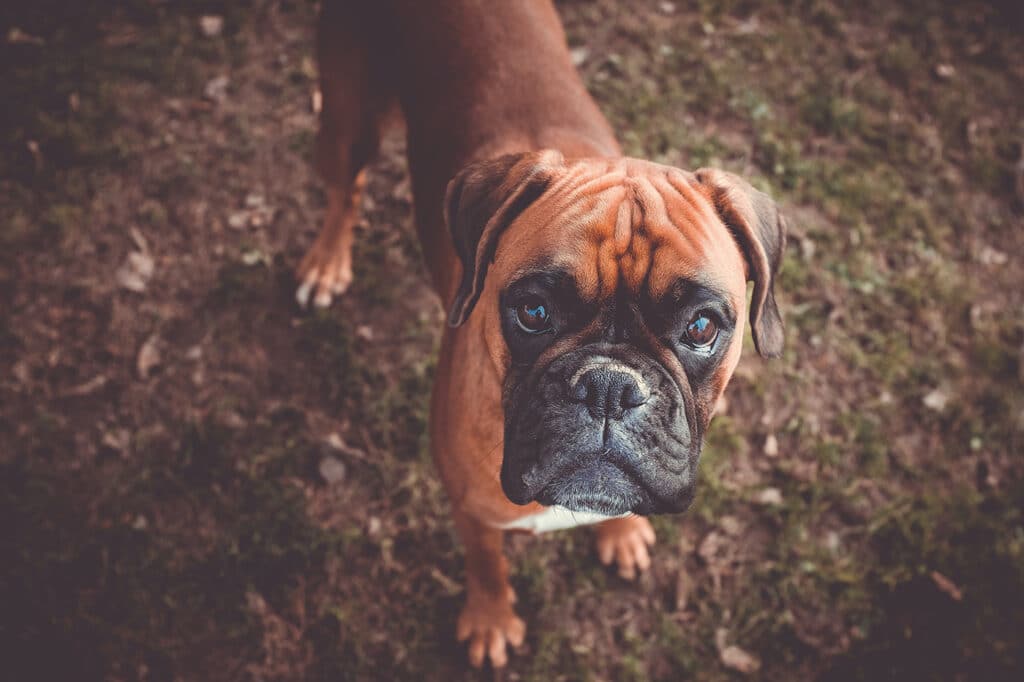
Thick, Double-Coated Breeds
Breeds such as Huskies, Newfoundlands and Saint Bernards that have a thick, double coat need more than just an occasional bath and brush out. These breeds require lots of extra brushing, especially during shedding season – typically the beginning of spring and fall. There are many different kinds of brushes that can be used on these breeds, but some are better left for you professional pet stylist to use.
The first thing to try would be a slicker brush. Slicker brushes have wire pins and are usually a rectangular in shape. The wire pins are very thin in diameter which allows them to break up the coat as it gets closely packed together.
After breaking up all the packed undercoat with the slicker brush, you can take an undercoat rake or a metal comb through the hair to get to the skin and ensure no matting is taking place. Undercoat rakes are helpful because they are stronger than combs. This makes it easier to rake through thick hair. Again, make sure the hair is clean!
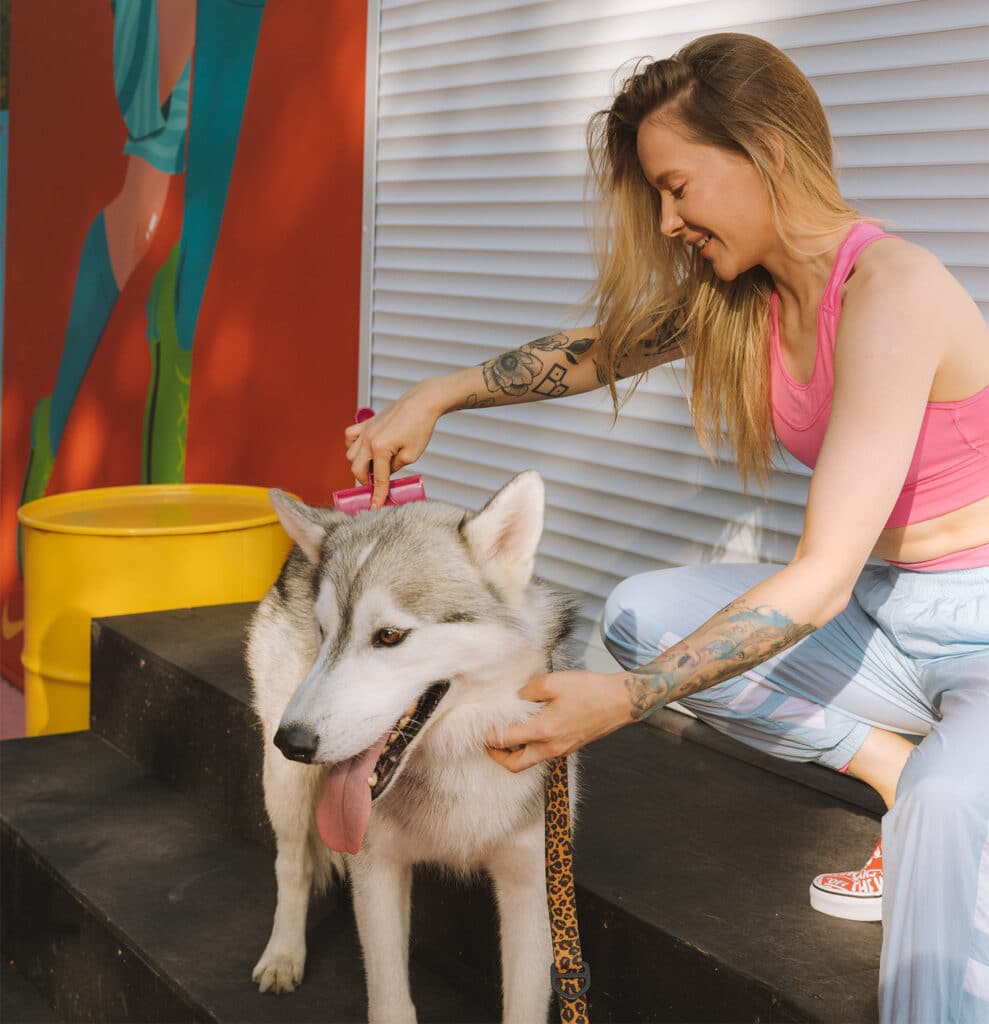
Long- and Curly-Coated Dogs
These make up the majority of breeds we see in the grooming salon as they need the most grooming. Similar to the double-coated breeds, the best tools to use for long- and curly-coated dogs are slicker brushes and a metal combs. The process remains the same whether your dog has straight hair or curly hair.
For a dog with a long coat, you want to brush with a slicker brush first and then run a metal comb through your pet to make sure it is tangle free. Check to make sure your slicker brush is appropriate for your pet by checking how long the pins are and how firm they are. For reference, a slicker brush is similar to a detangling brush made for humans.
For a thick, curly-coated dog you may want a brush with longer, firmer pins whereas a small, thin-coated dog like a Maltese may be better off with shorter, flexible pins.
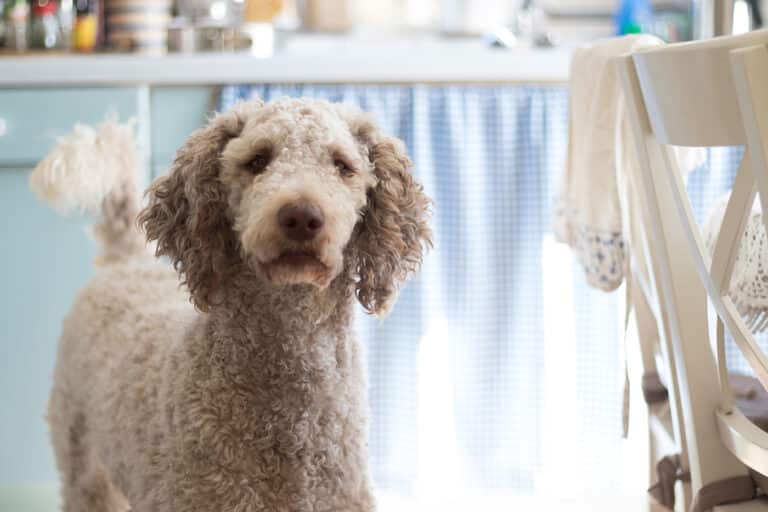
Wire-Coated Dogs
Wire-coated dogs are amazing because you can get away with not brushing them much at all because these breeds rarely get tangles. However, the more you can brush them at home, the less shedding you will notice and the better off the coat will look.
A great tool to use in addition to a metal comb is an Andis undercoat rake. The most important thing to note is that these are not intended for dematting, and you could harm your pet if they’re used in this manner. Consult your local pet groomer to learn how to properly use this tool.
Hand Stripping for Wire-Coated Dogs
With wire or rough coats, the best form of grooming is hand stripping – the natural process of removing dead coat. If you’d like to preserve the texture and color of your pet’s coat, hand stripping is the best way to accomplish this.
To hand strip, your groomer uses a stripping knife or stone to assist with pulling the dead coat from the hair follicles. Because the hair is dead, this does not hurt your dog at all and can actually feel good. After the hairs are naturally pulled from the hair follicles, they are stimulated to grow new, coarse hair that is rich in color and texture. Check with your local grooming salon to see if hand stripping services are available near you.
Summary
Looking for dog grooming brushes online? Pet Edge is a great resource and carries a wide variety of professional grooming tools you can use at home on your pet.
No matter which coat type your pet has, it is important to start brushing early and often! If you’re unsure which brush is right for your pet or have any other questions, reach out to your Smoochie Pooch dog groomer and they’ll be glad to help!
Elli Bultemeier NCMG, PTI, CPAe


